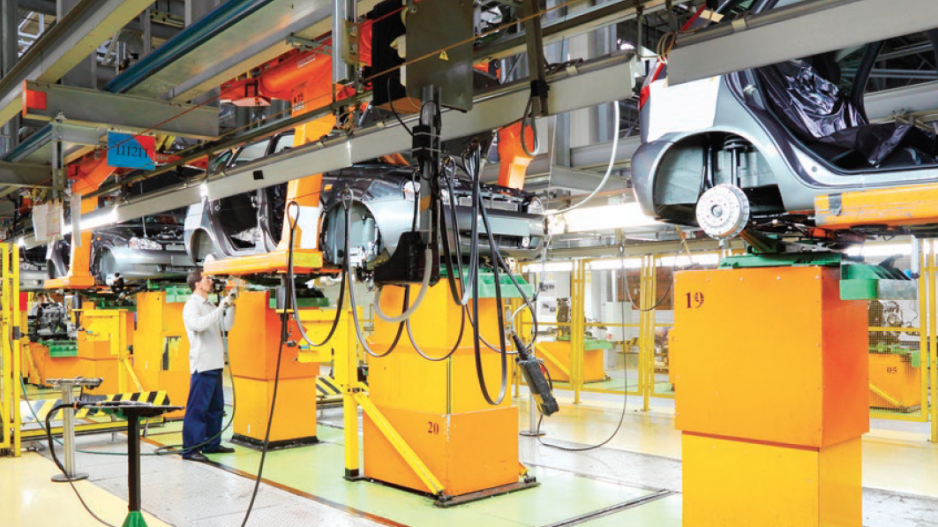In The Jetsons’ world, technology has rid humanity of nuisances like housework and commuting. Instead, the cartoon family relies on its robot housekeeper and son Elroy gets to school on an automated hover pod.
Artificial intelligence (AI) and automation make life easier for the family, but is it realistic that patriarch George Jetson remains gainfully employed as a “digital index operator” at his space-age desk job?
Workers responsible for routine, repetitive and rules-driven work are the most at risk of losing their jobs to advances in technology, according to Andrew Harries, co-founder of Richmond-based Sierra Wireless.
“Since [the] industrial revolution, technology has made life better for us,” Harries said. “It’s got people out of the filthiest, the dirtiest, the riskiest jobs, and we’ve moved on to create other types of work – but I’m not sure that’s happening now.”
Harries, who now works as a professor specializing in innovation and entrepreneurship at Simon Fraser University’s Beedie School of Business, points to the concept of the Phillips curve as an indication of where automation is taking the workforce.
The Phillips curve equation describes the inverse relationship between employment and inflation. Broadly speaking, as employment goes up in a jurisdiction, inflation will rise.
But Harries pointed out that the relationship has changed over the past decade.
“You’re seeing falling unemployment rates but not inflation.”
One of the culprits could be technology.
“The threat of automation is always … looming over people who are at work. And so the bargaining power of people at work is falling because of those constant outsourcing or automating of what they do.”
It’s a macroeconomic trend not lost on the Bank of Canada.
In an April speech to the Toronto Region Board of Trade, the central bank’s senior deputy governor said automation will likely boost productivity, but it will come at a cost.
“If we seek out and embrace new technologies while successfully managing their harmful side effects, we will create inclusive prosperity,” Carolyn Wilkins said.
Among her recommendations was the promotion of education and skills training.
But Sunil Johal, policy director at the University of Toronto’s Mowat Centre, said Ottawa must invest more in skills training if it’s to dull the impact of workers losing their jobs due to automation.
“I don’t think many countries have really come to grips with the impacts of automation and AI on their labour markets,” said Johal, who co-wrote a 2016 report examining the possible effect on the country if automation eliminates millions of jobs.
Johal’s report notes that between October 2015 and October 2016, 89% of job creation in Canada came from part-time work.
Meanwhile, advances in driverless car technology could put as many as 500,000 jobs at risk for truck drivers, cab drivers and delivery drivers.
But Johal told Business in Vancouver it’s not accurate to think “robots are coming to take all of our jobs.”
Instead, some people should expect automation to change their daily responsibilities at work, some should expect to lose their jobs, and some should expect the creation of new types of jobs that can’t quite be envisioned just yet.
“The interesting question is whether [automation] will be able to create new jobs that are as well-paying and as secure,” Johal said. “I probably come down on the side of no.”
Harries said jobs in agriculture, manufacturing and retail are among those most at risk of being eliminated, while traditional white-collar jobs in finance also appear to be at risk as AI algorithms are taking over some types of financial planning.
Among the shrinking proportion of workers to enjoy job security will be “creatives or creators,” Harries said. “People who come up with significantly new things or new ways of doing things.… Specifically, we’re talking about entrepreneurs, programmers and designers. The day of long-term employment or lifetime employment with the same organization is probably coming to an end.” •




